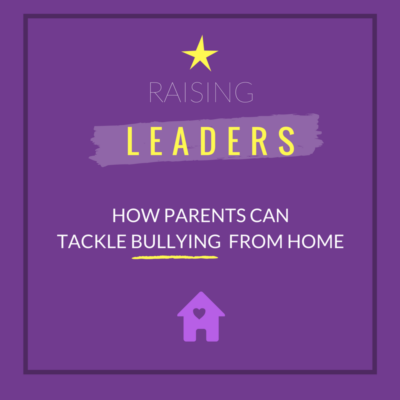 After months of being home, some kids are slowly cycling back into “in-person” school. Happy day. For some.
After months of being home, some kids are slowly cycling back into “in-person” school. Happy day. For some.
For others, the anxiety begins because being home full time felt safe. If your young children are having trouble socially, it can be a tough transition back.
How can you help if you suspect your child is the target of mean behavior? Here are 3 ways:
Find Out More
Concerned that your child is being bullied? Bullying is repeated, intentional behavior meant to create a real or perceived imbalance of power and starts as early as 4 years old. It can be physical (i.e., hitting), mental and emotional (i.e., name calling) or relational (i.e., you can’t sit here).
By the way, if your child is acting out in this way, nip it in the bud. Doesn’t mean you’re a bad parent if your young child tests their power. You’re actually an awesome parent if you course correct them in these early years.
Sometimes it’s not true bullying that they are experiencing but they may be feeling hurt for some reason. It is, of course, still important to get to the bottom of it. Kids will often be disappointed if they weren’t included in a birthday party or a game or weren’t able to sit at a certain lunch table or next to someone on the bus. That’s no fun and can make for a very bad day. If it isn’t repeated or intentional meant to make your child feel bad, though, then it’s important to know the difference and explain this to your children.
Focus
How do we know the difference? Pay attention. If a child mentions that they’re having an issue beyond a disappointment, listen. If they’re not “talkers,” listen to their body language. Are they sullen, withdrawn, or nervous? Have their sleeping or eating habits changed? Is it extra hard to get them out the door to go to school? Are they just “not themselves?”
If so, asking an indirect question often helps. For example, “How was recess today? Who did you play with?”
What’s Up? How Can I Help?
If they are having a problem, assess and strategize. Although you may be thrilled to have them back to a regular routine after the unbelievably difficult year we’ve had, they may need to be reminded that you’re still in their corner no matter where they spend their day.
Is it something they can handle? It’s good to teach them simple skills in handling conflict themselves.
Or is it something that needs intervention? For example, if they feel threatened or diminished and don’t feel as if they have the power to address it. If so, handle with care. The very most important thing to remember is that they keep talking to us. They will only do that if we don’t overreact or under react. An “I’m going to give that kid a piece of my mind!” or “Ignore it.” will shut a child down. As kids get older, it gets increasingly critical for them to feel safe and talk with us so we need to be careful when they do open up at every age.
Together decide on next steps. Try having the child handle it first, whether that means teaching them how to stand up straight, look their peer in the eye and say “stop” calmly or going to a teacher.
If that doesn’t work or if the teacher isn’t helpful, write a letter to explain the issue and set up a meeting. (Note: very often teachers are not aware of the problem because it may not be happening in the classroom. Perhaps it’s happening in the cafeteria, bathroom, school yard or bus).
If you’re not getting help with the teacher, set up time with the principal. Keep going and stay calm (even though you may want to go ballistic!). Your child is watching that, too. Kids get scared when we lose it with the authority figures in their school. Conversely, they also know when we don’t make it a priority.
But finally, please remember that these are teachable moments. The most important thing they may learn is how much you love and value them. It only takes one adult to make a child feel like they are worthy. Hopefully, this too shall pass and they will grow to respect themselves and others. In other words, you’re raising a leader.
Finally, celebrate your successes. When our children are mistreated, it is extremely stressful. Reach out to the Go-To Adults in your life and then give yourself a hug. You are a superhero.





